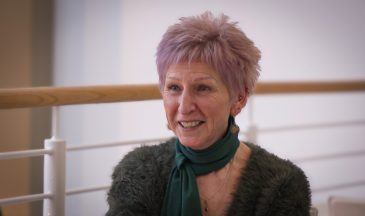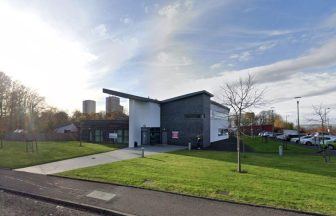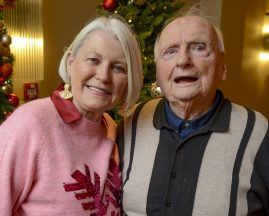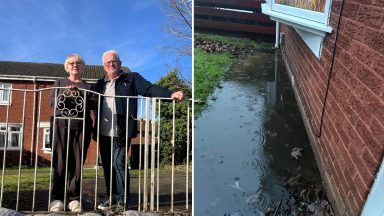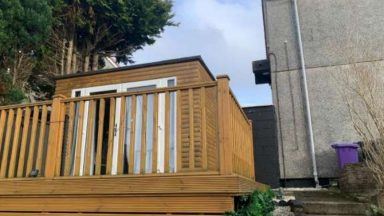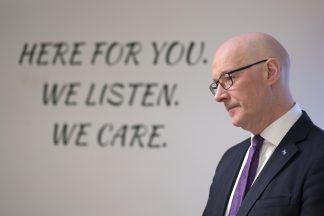A service which helps support female offenders to rebuild their lives after drug and alcohol use is facing £850,000 in cuts.
The Turning Point 218 Service, which has been running for almost two decades and has been hailed as “groundbreaking”, is now facing compulsory job losses and closure after a reduction in funding from both the Scottish Government and Glasgow City Council.
Unite union, which represents the majority of the thirty workers based in Glasgow city centre, branded the decision to cut funding to the programme as “scandalous”.
The service, which is provided by Turning Point Scotland and the Glasgow Addiction Service, helps address issues with substance use, physical and mental health and other social needs including housing and childcare initiatives that female offenders face.
It provides an alternative to custody for women in the justice system and has been working with the health board, Glasgow courts and the city council since 2005.
The service was originally a 12-bed residential unit and day programme however, a review by the Glasgow Health and Social Care Partnership recently included reducing the bed capacity from 12 to eight women.
The 218 Service has a combined budget of £1.5m – made up of £300,000 from Glasgow City Council and £1.2m from the Scottish Government.
Glasgow City Council withdrew £292,000 of funding in March 2023, and it has now been confirmed that the Scottish Government has further reduced funding to the service by £550,000.
Unite general secretary Sharon Graham said: “The decision to withdraw up to £850,000 for the 218 Service is scandalous. It comes at a juncture when figures were released over alcohol related deaths indicating an increase in Glasgow.
“If there was ever a time to invest money into a service like this to help some of the city’s most vulnerable people it is now. Unite will back our members who are providing transformative and life-changing work all the way.”
The decision to withdraw the funding for the 218 Service comes as figures, published by National Records of Scotland, recently revealed that there were 1,276 alcohol-specific deaths registered in Scotland in 2022 – an increase of 2% (31) on 2021.
Female deaths rose by 31 to 440, with male deaths unchanged at 836. There are 4.3 times as many deaths from these causes in the most deprived communities as there are in the least deprived communities.
The increase in deaths in Glasgow was also bigger than across the nation. In Glasgow, there were 202 alcohol-specific deaths in 2022 – up from 188 the year before, constituting a rise of 7.5%. It is the highest number of deaths since 2011.
Unite regional officer Linda Wilson added: “The 218 Service does ground-breaking and essential work with women who have a range of complex needs such as addiction, trauma issues, poor mental or physical health. It’s utterly shameful that both Glasgow City Council and the Scottish Government believe the best way to help vulnerable women is to cut beds and slash the funding of a lifeline service by £850,000.
“The swinging cuts to bed capacity and funding now means that the 218 Service is now itself on life-support instead of it being the invaluable life-support it has been for its users.”
The calls for a reversal of cuts have been also been backed by the national Turning Point organisation who say they are “dismayed” by the decision.
Director of operations Patrick Mackay said: “Turning Point Scotland shares Unites extreme concern for the future of the innovative 218 service.
“Our 218 service delivers a comprehensive programme of support, as an alternative to a custodial sentence. The service aims to address the root causes of women’s offending, by offering a therapeutic, trauma informed programme for women to actively engage in their own personal recovery journey. Each woman is allocated a member of our highly qualified team.”
He added that plans currenting tendering for an “accommodation with support- female residential service” by the council’s HSCP are “predominately the same” as the existing 218 service.
He added: “We were dismayed when we received the tender documentation as we had recently completed a full review of the service, agreed the service specification and a budget for the service of £1.37 million. TPS had no prior knowledge of Glasgow City HSCP intention to cut the budget for the service by approximately 50%. A residential provision as currently configured is not sustainable with that level of funding.
“TPS sought clarification from Glasgow City HSCP and they confirmed the level of available funding. As the funder of the service via Section 27 monies TPS also contacted the Scottish Government for clarity regarding their knowledge of and/or participation in the decision to reduce the available funding of the service.
“Our priority now is our staff and the women that use our service. We and will continue to have evidence based conversations with the unions, partners and the government to reach a conclusion for this much needed service.”
A Scottish Government spokesperson said: “This year £113m will be made available to Alcohol and Drugs Partnerships (ADPs) to support local and national initiatives ensuring that local services can respond to local needs. It is for ADPs to manage their own budgets and allocate financial resources. This year’s funding awards have been made toto ADPs, including for stabilisation, and they are now responsible for its final distribution.
“As we set out in the Cross Government Approach paper, we have committed £3m a year to ADPs to develop and implement stabilisation services. This funding is to develop and implement stabilisation services and work towards aligning crisis, stabilisation, detox and rehabilitation to reflect the full range of recovery pathways required.
“A further £6m has been allocated for a capacity fund to allow stabilisation and crisis services to scale up and improve their facilities. That funding will be distributed through an annual fund over three years. A working group, made up of experts including those with lived experience, has been established to advise how this will be spent most effectively.”
A spokeswoman for Glasgow Health and Social Care Partnership said: “Following a joint service review with Turning Point it was agreed the number of beds could be reduced in line with demand.
“This review was carried out earlier in the year and we have worked with Turning Point since then to reduce the number of beds from 12 to eight.”
Follow STV News on WhatsApp
Scan the QR code on your mobile device for all the latest news from around the country




